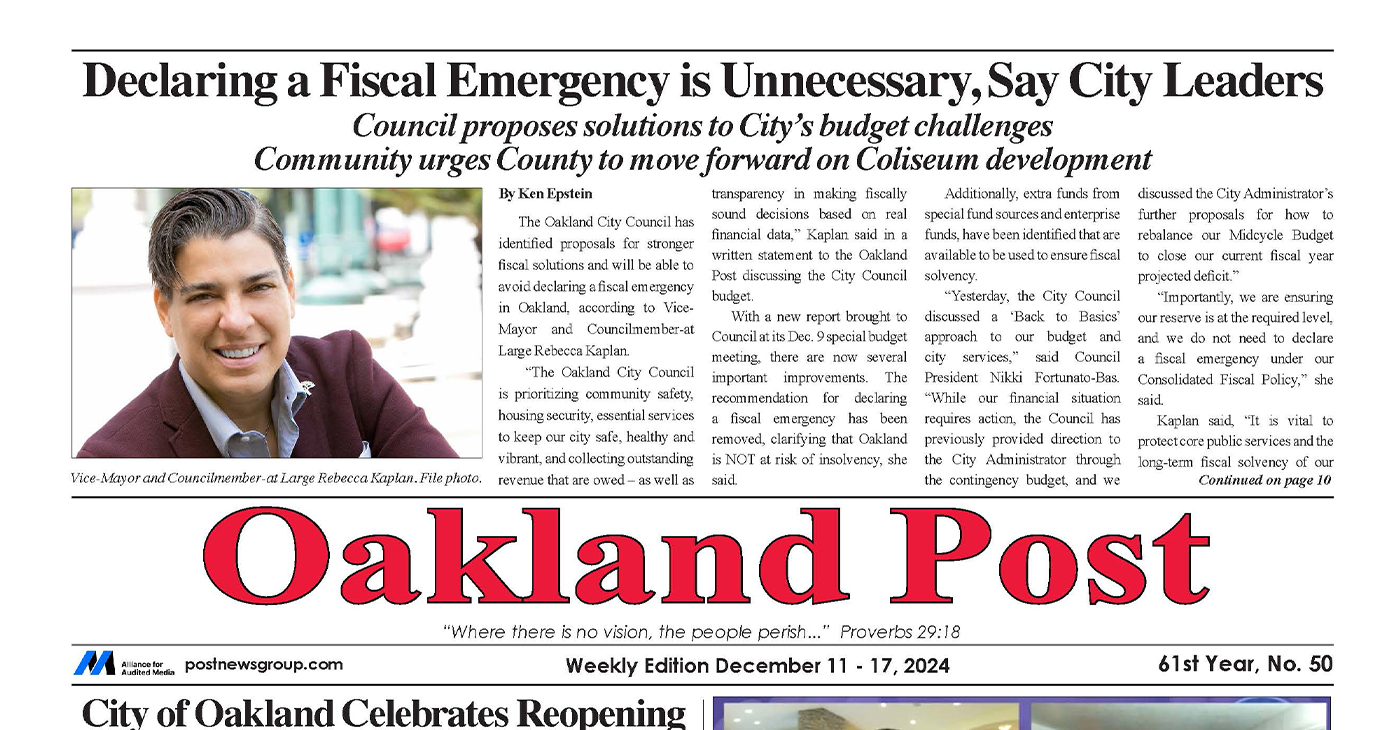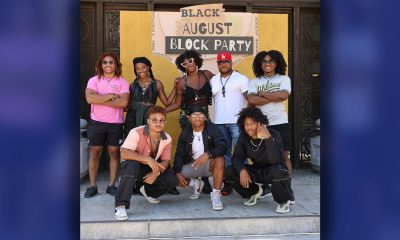Opinion
Resistance to the Idea of Reparations May Be Simply Psychological

Part I
The newly wide-ranging discussion of reparations is being stimulated by the recognition of the 400th anniversary of the introduction of kidnapped captive Africans at the birth of the American colonies (1619) to later become the United States (1776).
This new/old discord has been re-enlivened. The call to be “repaired” from the damage caused by white enslavement has been openly and covertly rejected woth a resounding ‘no’ by most of the white population and some misguided and memetically infected Black people.
The reason why may be found within my own dictum in Black psychology that “power is the ability to define reality and to have other people respond to it as if it were their own.” It is also the thinking of the great Black psychologist, Dr. Bobby Wright.
Dr. Wright suggested that the ideology of white supremacy is supported by a pathological fear and hatred of blackness; and, by implication, the rejection of the idea of reparations for Black people may be found in the racist core of the white American psyche.
In utilizing diagnostic categories found in white psychology (mis-labeled as general psychology), Dr. Wright notes that many white people suffer from a “psychopathic personality disorder.” He notes that a psychopath is an individual who is constantly in conflict with other persons or groups; is unable to experience guilt; is completely selfish, callous and has a total disregard for the rights of others; has an inflated sense of self-worth; is manipulative, and refuses to accept responsibility .
He argues that in relationship to Black people, white people have historically reflected most, if not all, of these attributes, ergo a Psychopathic Racial Personality Disorder.
This psychopathic condition was, in fact, created by white people. One must remember that, for most of modern history, the entire known world held Africa in high regard as the place of high civilization.
Yet, strangely enough, with the onset of the age of Enlightenment and Exploration (invasion) came the advent of the American slave trade (racially based commercial human trafficking) and the need to redefine the meaning of Africa and people of African ancestry (think: “power is the ability to define reality”).
The cancerous idea of white superiority and Black inferiority was not accidental, genetically ascribed nor divinely ordained. It was created and socially constructed. Though endemic to American life and living, several sources can be identified as contributing to white psychopathic disorder and mental madness.
The United Daughters of the Confederacy (UDC)
The establishment of the United Daughters of the Confederacy (UDC) in 1894 (less than one generation after the end of the Civil War) signals the beginning of a premeditated attempt to change the narrative and create the indelible story of African savagery and White honor and dignity.
Growing to about 17,000 members at the turn of the century (1900), by World War I, the UDC had over 100,000 white women as members. What is important to note is that the UDC’s mission and purpose was to “Tell of the glorious fight against the greatest odds a nation ever faced, [so] that their hallowed memory should never die.”
They even went so far as to create a commemorative Southern Cross of Honor medallion and distributed almost 80,000 to Confederate veterans. It is important to note that the secessation of the Southern states was an act of treason. Power is the ability to define reality and the UDC attempted to “redefine” treachery as honorable and the “Lost Cause” (the right to murder and enslave Black people) was lauded as the genteel South with ‘happy’ slaves; and to identify Confederate soldiers as deserving unquestionable respect.
The UDC’s goal to preserve white supremacy was masked (redefined) and strategically supported by the erection of monuments to honor the Confederacy; to publish biographies and history textbooks about major southern figures (aka traitors); to influence educational curriculum; and to immortalize the heroism and valor of the KKK and the Southern way of life.
The Association of Black Psychologists, Bay Area Chapter (ABPsi-Bay Area) is committed to providing the Post Newspaper readership with monthly discussions about critical issues in Black Mental Health. The ABPsi-Bay Area is a healing resource. We can be contacted at (bayareaabpsi@gmail.com) and readers are welcome to join with us at our monthly chapter meeting, every third Saturday at the West Oakland Youth Center from 10:00 a.m. – 12:00 p.m.
Wade Nobles, PhD is co-founder and past President, The ABPsi, Professor Emeritus, Africana Studies and Black Psychology, SFSU.
Activism
Oakland Post: Week of December 11 – 17, 2024
The printed Weekly Edition of the Oakland Post: Week of December 11 – 17, 2024

To enlarge your view of this issue, use the slider, magnifying glass icon or full page icon in the lower right corner of the browser window. ![]()
Activism
Oakland Post: Week of December 4 – 10, 2024
The printed Weekly Edition of the Oakland Post: Week of December 4 – 10, 2024, 2024

To enlarge your view of this issue, use the slider, magnifying glass icon or full page icon in the lower right corner of the browser window. ![]()
Activism
COMMENTARY: PEN Oakland Entices: When the News is Bad, Try Poetry
Strongman politics is not for the weak. Here in the U.S., Donald Trump is testing how strongman politics could work in the world’s model democracy.

By Emil Guillermo
As the world falls apart, you need more poetry in your life.
I was convinced on Tuesday when a weak and unpopular president of South Korea — a free nation U.S. ally — tried to save himself by declaring martial law.
Was it a stunt? Maybe. But indicative of the South Korean president’s weakness, almost immediately, the parliament there voted down his declaration.
The takeaway: in politics, nothing quite works like it used to.
Strongman politics is not for the weak. Here in the U.S., Donald Trump is testing how strongman politics could work in the world’s model democracy.
Right now, we need more than a prayer.
NEWS ANTIDOTE? LITERATURE
As we prepare for another Trump administration, my advice: Take a deep breath, and read more poetry, essays and novels.
From “Poetry, Essays and Novels,” the acronym PEN is derived.
Which ones to read?
Register (tickets are limited) to join Tennessee Reed and myself as we host PEN OAKLAND’s award ceremony this Saturday on Zoom, in association with the Oakland Public Library.
Find out about what’s worth a read from local artists and writers like Cheryl Fabio, Jack Foley, Maw Shein Win, and Lucille Lang Day.
Hear from award winning writers like Henry Threadgill, Brent Hayes Edwards and Airea D. Matthews.
PEN Oakland is the local branch of the national PEN. Co-founded by the renowned Oakland writer, playwright, poet and novelist Ishmael Reed, Oakland PEN is special because it is a leader in fighting to include multicultural voices.
Reed is still writing. So is his wife Carla Blank, whose title essay in the new book, “A Jew in Ramallah, And Other Essays,” (Baraka Books), provides an artist’s perspective on the conflict in Gaza.
Of all Reed’s work, it’s his poetry that I’ve found the most musical and inspiring.
It’s made me start writing and enjoying poetry more intentionally. This year, I was named poet laureate of my small San Joaquin rural town.
Now as a member of Oakland PEN, I can say, yes, I have written poetry and essays, but not a novel. One man shows I’ve written, so I have my own sub-group. My acronym: Oakland PEOMS.
Reed’s most recent book of poetry, “Why the Black Hole Sings the Blues, Poems 2007-2020” is one of my favorites. One poem especially captures the emerging xenophobia of the day. I offer you the first stanza of “The Banishment.”
We don’t want you here
Your crops grow better than ours
We don’t want you here
You’re not one of our kind
We’ll drive you out
As thou you were never here
Your names, family, and history
We’ll make them all disappear.
There’s more. But that stanza captures the anxiety many of us feel from the threat of mass deportations. The poem was written more than four years ago during the first Trump administration.
We’ve lived through all this before. And survived.
The news sometimes lulls us into acquiescence, but poetry strikes at the heart and forces us to see and feel more clearly.
About the Author
Emil Guillermo is a journalist and commentator. Join him at www.patreon.com/emilamok
-

 Activism4 weeks ago
Activism4 weeks agoOakland Post: Week of November 20 – 26, 2024
-

 California Black Media3 weeks ago
California Black Media3 weeks agoCalifornia to Offer $43.7 Million in Federal Grants to Combat Hate Crimes
-

 Activism4 weeks ago
Activism4 weeks agoAn Inside Look into How San Francisco Analyzes Homeless Encampments
-

 Black History3 weeks ago
Black History3 weeks agoEmeline King: A Trailblazer in the Automotive Industry
-

 California Black Media3 weeks ago
California Black Media3 weeks agoCalifornia Department of Aging Offers Free Resources for Family Caregivers in November
-

 California Black Media3 weeks ago
California Black Media3 weeks agoGov. Newsom Goes to Washington to Advocate for California Priorities
-

 Activism3 weeks ago
Activism3 weeks agoOCCUR Hosts “Faith Forward” Conference in Oakland
-

 #NNPA BlackPress4 weeks ago
#NNPA BlackPress4 weeks agoPRESS ROOM: Clyburn, Pressley, Scanlon, Colleagues Urge Biden to Use Clemency Power to Address Mass Incarceration Before Leaving Office























































